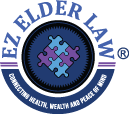
The following is a mishmash of information on various Elder Law, Special Needs Law, and Estate Planning issues. It also includes anything else we found interesting during the month of June, 2023. We will continue updating from time to time throughout the month. Last updated 6/8/2023. Keep in mind, you are using linked content at […]



